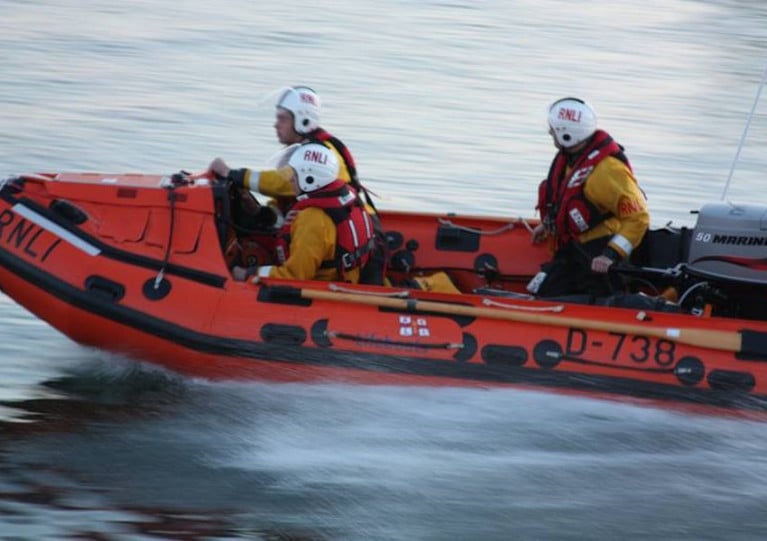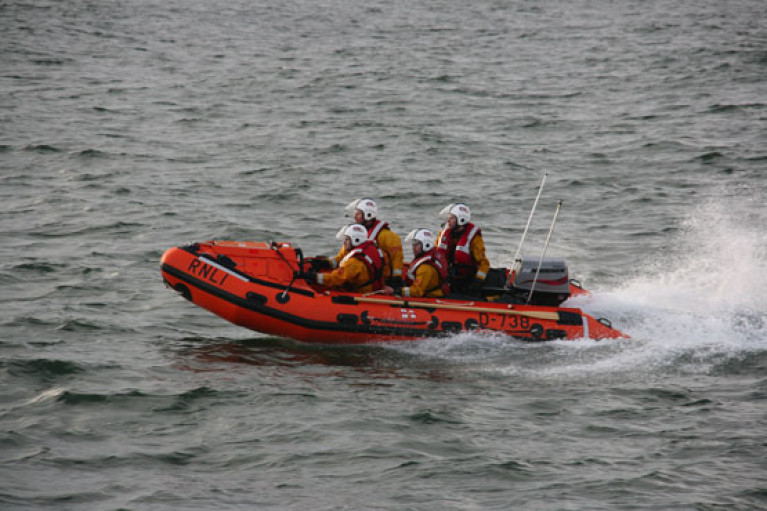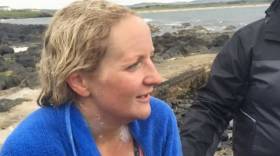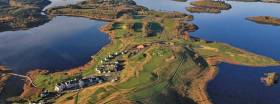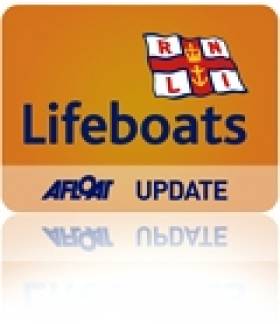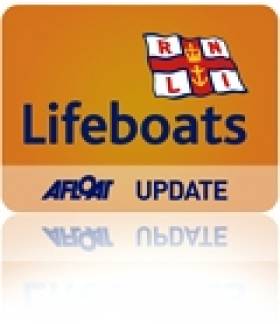Displaying items by tag: Portstewart
Both Portrush RNLI lifeboats were requested to launch by HM Coastguard yesterday afternoon (Saturday 20 June) to reports of person on an inflatable paddleboard in difficulty in the sea just off Portstewart on Northern Ireland’s North Coast.
The inshore lifeboat was launched at 1.23pm initially into a slight sea swell with an offshore wind and made their way to Portstewart, followed by the all-weather lifeboat 10 minutes later.
The inshore crew arrived on scene at 1.35pm and successfully recovered the casualty who was 200 metres from shore. The crew found that the casualty had been blown out to sea, had fallen off their board and been unable to get back on.
Both casualty and their board were swiftly returned to shore where they were handed over to the care of the coastguard and NI Ambulance Service who had been called as a precaution. The all-weather lifeboat was stood down.
Ivor Paul, deputy launching authority at Portrush RNLI, said: “We would urge people not to bring inflatables to the coast as it is so easy to get caught by the wind and within seconds you can suddenly be in danger. If in doubt talk, to the lifeguards and check out the RNLI and coastguard websites for guidance and advice.”
Portrush RNLI’s lifeboats aided in the rescue of a young man who fell 30 feet onto rocks on the north coast last night (Wednesday 10 June).
Both the inshore and all-weather lifeboats were launched as a precaution due to the nature of the incident, after reports that the man had fallen at Port-Na-Happle just off the Convent Walk, a popular scenic coastal path in Portstewart.
Volunteer lifeboat crew member Dr Colm Watters, who is a consultant at Causeway Hospital’s emergency department, was transferred ashore to assist the local coastguard with the treatment of the casualty before he was passed into the care of the NI Ambulance Service.
Lifeboat operations manager Keith Gilmore said later: “We had the opportunity to do some training with our coastguard colleagues last year and this has paid off in terms of our joint working procedures.
“We are fortunate to have a volunteer with Colm’s expertise on crew and this was invaluable in this incident. We wish the casualty well and hope he has a speedy recovery.”
Earlier in the day, Wicklow RNLI brought three fishermen to safety at lunchtime after their 12-metre vessel got into difficulties off the Wicklow coast.
The alarm was raised earlier in the morning after the fishing boat’s propeller got fouled in ropes near the Codling Buoy.
Crew of the all-weather lifeboat Jock & Annie Slater located the drifting fishing vessel 14 miles east of Wicklow Harbour and quickly established a tow. The boat was safely tied alongside the South Quay at 12:30pm.
#SeaSwim - Charity worker Heather Clatworthy has become only the second swimmer to cross the Atlantic between the Inishowen Peninsula and Portstewart on the North Coast – and the first in nearly 90 years, according to the Irish Examiner.
The 34-year-old, who lives in Warwick with her family but grew up in Portstewart, crossed the expanse of open sea on Wednesday 27 July in around half the time expected, reaching the shore a little over four hours after setting out from Stroove beach in Moville.
“Two hours in I just didn’t think I was going to do it,” she said after powering through illness and choppy waters to complete her amazing feat, last achieved by famous English Channel swimmer Mercedes Gleitze in 1929.
The Belfast Telegraph has video of Clatworthy as she set out on her remarkable challenge:
In other sea swimming news, Galway long distance swimmer Alice Flood celebrated her swim across the English Channel earlier this week.
As the Galway Independent reports, the Bushy Park native made the gruelling crossing in just under 14 hours and joins an elite group of swimmers who've completed the England-to-France challenge.
Lough Erne Loses 2017 Irish Open
#LoughErne - It's been confirmed that the Lough Erne Resort will no longer host next year's Irish Open golf tournament.
As reported on Afloat.ie earlier this year, changes in the European golfing scene had cast doubt on the Fermanagh lakeland resort hosting of the 2017 event in after getting the nod two years ago before its purchase by American business tycoon Tony Saliba.
Those doubts were confirmed last week, as the News Letter reports, with a statement from the Lough Erne Resort that it is "extremely disappointed" that the European Tour has announced a change in venue.
It's understood that the sport's new European bosses favour a links course for the annual Irish Open, with Portstewart Golf Club on the North Coast a likely candidate.
The News Letter has more on the story HERE.
Butcher Couple Eschews Anniversary Gifts for RNLI Donation
#RNLI - Rather than accept gifts for their 50th wedding anniversary, a Portstweart couple have asked their family and friends to make donations to Portrush RNLI.
As the Coleraine Times reports, Ewart Toms and his wife - who are well known butchers in the area - raised £500 for the RNLI which they were more than happy to hand over to lifeboat station volunteers at Portrush.
They said: “We wanted to mark this special occasion in our lives, by making a donation to a cause close to our hearts, and to the volunteers who risk their lives to save others.”
The Coleraine Times has more on the story HERE.
#News - The body of a Meath teenager who went missing in the early hours of Easter Monday has been found in the River Blackwater, as the Irish Independent reports.
Ricky McDermott, 17, disappeared after a night out in Virginia, Co Cavan on Sunday night.
Following a search launched on Monday morning, The Irish Times reports that a body was recovered from the River Blackwater in Virginia around 5pm yesterday (2 April) by the Boyne Fishermen’s Rescue and Recovery service.
In other news, the man pulled from the water near Portstewart Harbour yesterday has died.
BBC News reports has named the deceased as Stanley Duncan, who was chief executive of the Driver and Vehicle Agency in Northern Ireland.
It's understood that the 57-year-old has been fishing at rocks near the harbour when he fell into the sea by Victoria Terrace.
Boys Rescued From Rocks Off North NI Coast
#LIFEBOATS - Two teens were rescued from rocks off north Co Derry on Wednesday afternoon, the Belfast Telegraph reports.
The 13-year-old boys were stranded by the incoming tide in the East Promenade area of Portstewart.
PSNI officers called to the scene around 4.30pm managed to persuade one of the boys to cross to the shore, but the coastguard was tasked to lift the other boy from the rocks by the RNLI, according to UTV News.
Police inspector Mick Wood said that the incident "serves as a reminder to us that tides are extremely unpredictable".



























